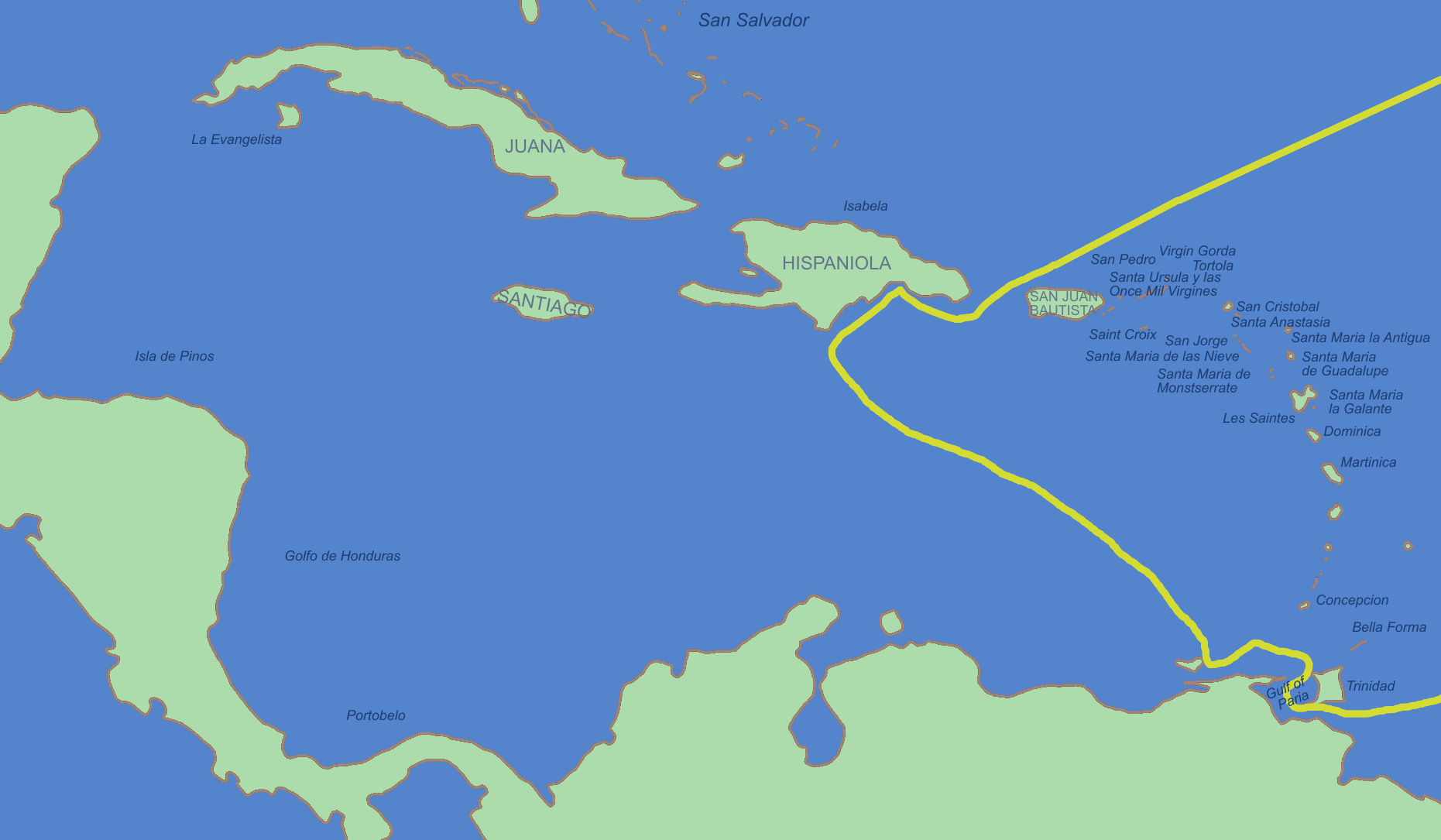 |
| Columbus's Third Voyage |
By this point, Columbus was in poor health, so they set sail for a familiar island: Hispaniola. They landed on August 19, but their trouble was just beginning. Many of the settlers on the island were in rebellion against Columbus's rule, saying he was cruel and that they had been misled about the treasures of the New World. A number of settlers and sailors had returned to Spain and testified in court against him, saying he and his brothers had mismanaged the territory. Columbus had a number of the settlers hanged for disobedience. The court in Spain didn't like these reports either, and the clergy in Spain went up in arms when they heard that Columbus refused to baptize the natives because of his economic interest in using the natives as slaves. In October 1499, he sent a couple ships back to Spain with a message he needed a commissioner appointed to help him govern. The new commissioner (Francisco de Bobadilla) arrived in 1500 and was immediately met with complaints about Columbus and his brothers. Based on this, and based on the complaints heard by the court in Spain, Columbus was arrested, chained, and sent back to Spain, all without a defense.
In 2006, a 48-page report was found in the Spanish city of Valladolid. It contained the testimonies of 23 people who were both in support and against Columbus's rule. Much of it is filled with barbaric tales of his leadership, too cruel to mention in this blog. However, it basically explains that just short of genocide took place on the island of Hispaniola.
After six weeks in jail, King Ferdinand and Queen Isabella finally were able to listen to Columbus's side of the story. It is obvious that Columbus had created much wealth and fame for the Spanish empire, but his ruling methods were cruel and too harsh for the Spanish to abide by. The king and queen released Columbus and his brothers, restored their wealth, and even agreed to fund a Fourth Voyage. But Columbus would no longer be any kind of ruler.
No comments:
Post a Comment